In the vast majority of games, we play the role of the hero. Sometimes we're the Hero, with a capital H, the kind who does good and defeats evil with all his might, like Link, in Legend of Zelda, the "Hero of Time."
Other times, we're not necessarily a "hero," we're just someone on a personal quest and, along the way, will save the world, like the brothers Billy and Jimmy in Double Dragon, who are only trying to save one of their girlfriends and end up saving the entire city by beating up a gang of criminals.
And other times, we're not even heroes; we just want to save a loved one, a child, or someone we care about, ignoring the world, like Harry Manson from Silent Hill, who only wanted his wife and didn't care about the rest.
But, have you ever stopped to think about how many games allow you to be the villain of the story? How many give you the mission to end the world or destroy everything? Where you unleash all the evil in your heart and be sadistic and cruel to everyone? They're actually quite rare. Generally, you're in a moral gray area, and even if your actions are "bad," you still do something good, like confronting someone who's even more evil than you.
So, let's discuss some games where you can actually be the villain of the story and commit terrible acts during your game, and if you have any questions, just leave them in the comments.
Undertale
Undertale is a game quite different from other games. You can play normally, defeating or sparing opponents, or you can take a completely peaceful route, without harming a single creature.
On the other hand, it also has an option called the "genocide route," which allows you to kill absolutely everyone in your path, even those NPCs who’ve been kind to you. A very typical villainous move.
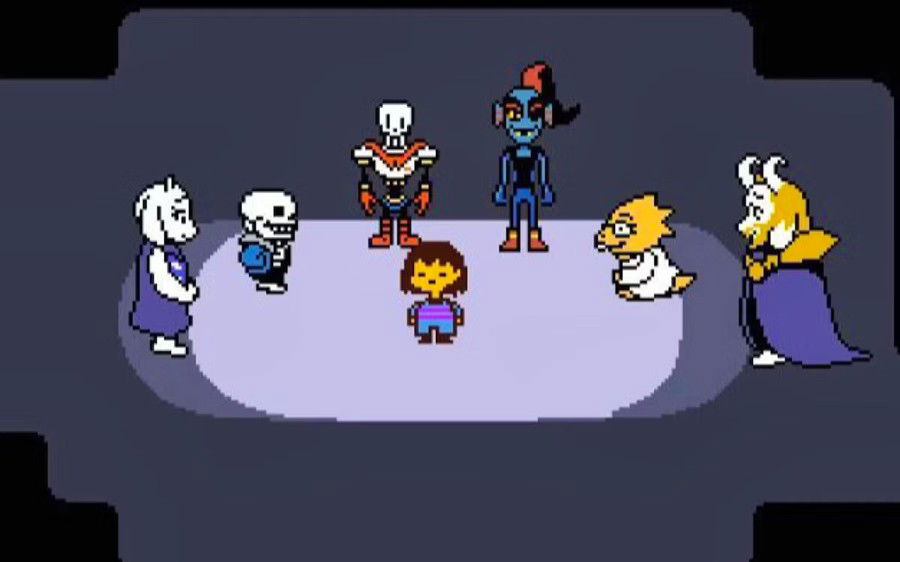
The genocide route ends with you literally destroying the entire world, as your villainous side desires to cause more and more destruction. And this choice has permanent consequences: even if you restart the game, it "remembers" that you followed this path. The atmosphere changes, the characters become colder, and some events can no longer be reversed. Undertale breaks the fourth wall and punishes the player for their actions, making the genocide route a purposefully uncomfortable experience.
Katamari Damacy
Katamari Damacy stands in the middle of your interpretation, deciding whether the Prince is a villain. One day, the self-centered King of All Cosmos got drunk and destroyed stars. He orders you, his son, to roll around the world rolling a sticky ball that absorbs everything around you, starting with small pieces of paper, leaves, and cans, and ending with buildings, cities, planets, and the entire universe. Ultimately, you destroy the entire universe to right a drunken man's wrong. Villain or not?
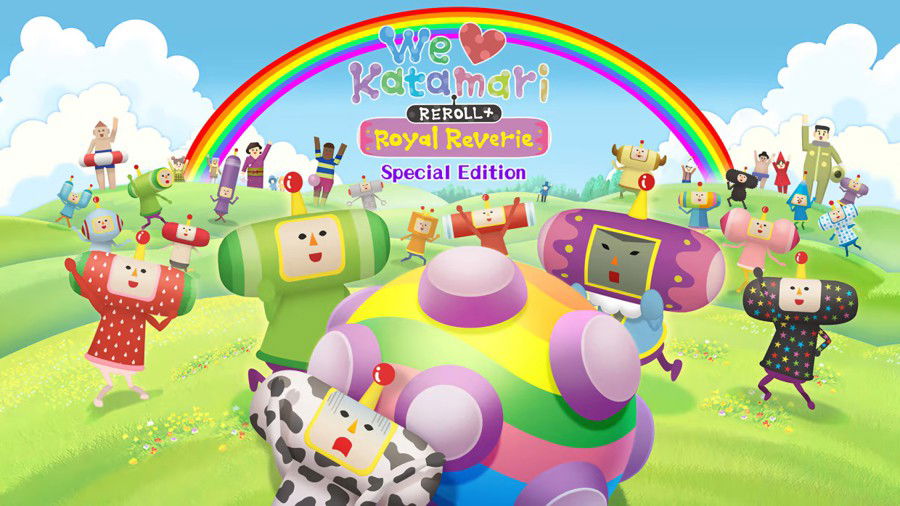
Katamari is a humorous and quite satirical game, with absurd situations designed to make people laugh. However, since the Prince is a character without a will of his own, a personality, and obedient, who causes destruction wherever he goes, can we say he’s a villain or just a "henchman" of the real villain, the King of the Cosmos? In any case, we can't say he’s a hero; after all, his actions will destroy the entire game’s universe.
Baldur’s Gate 3
Many RPGs allow you to make morally questionable decisions to achieve certain goals, such as saving or sacrificing someone, but generally, you leave the game universe a better place than it was before you played. In other words, even if some bad things are done along the way, the world is still saved.
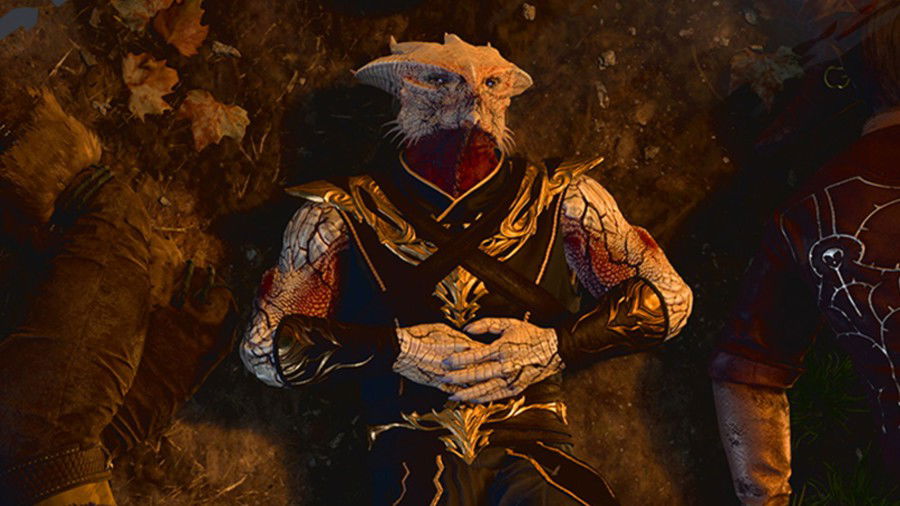
Without going into too much detail, Baldur's Gate 3 is a special case, because you play quite freely and make your character good or evil with each decision. There's even a unique backstory called The Dark Urge, where you're openly encouraged to be evil.
Of course, unlike other games focused on gratuitous violence, Baldur's Gate 3 has an excellent story and an excellent reason for the Dark Urge story and why you do what you do. If you want to be a great villain at the end of the game, just let your "urge" take over and end the game as one of the greatest catastrophes to ever hit the world of Faerûn.
Hell Architect
Sometimes you're labeled a villain (or cursed by everyone, like a soccer referee), and you're just doing your job. This is an example of "just following orders." Okay, you enjoy following orders, you're quite pleased to get this new job, but ultimately, you're just the Architect of Hell, tasked with designing new and varied forms of torture to ensure maximum pain and suffering for the damned and extracting energy to keep the place running.
Sure, if it were just about torturing people in the most fun, creative, and painful ways possible, the job would be pretty easy, but in Hell Architect you have to ensure the condemned remain "Whole" (not to say alive, after all, they're in hell) to continue being tortured. So you have to torture them, but not so much that you “kill” them... again. Furthermore, it's also up to you to make enough space to accommodate all the tortured souls and new torture equipment to continue extracting energy from the pain.
So, in the end, your life becomes a living hell of having to manage and plan everything! It seems we've been tricked.
Rampage
Rampage is one of those games that leaves little room for doubt: here, you're the villain, and that's precisely the fun. Controlling giant monsters—like George the Gorilla, Lizzie the Lizard, or Ralph the Wolf—your goal is to destroy entire cities, building by building, and cause as much chaos as possible. You devour people, crush tanks, shoot down helicopters, and the game simply makes no attempt to hide that your mission is to cause obliteration.
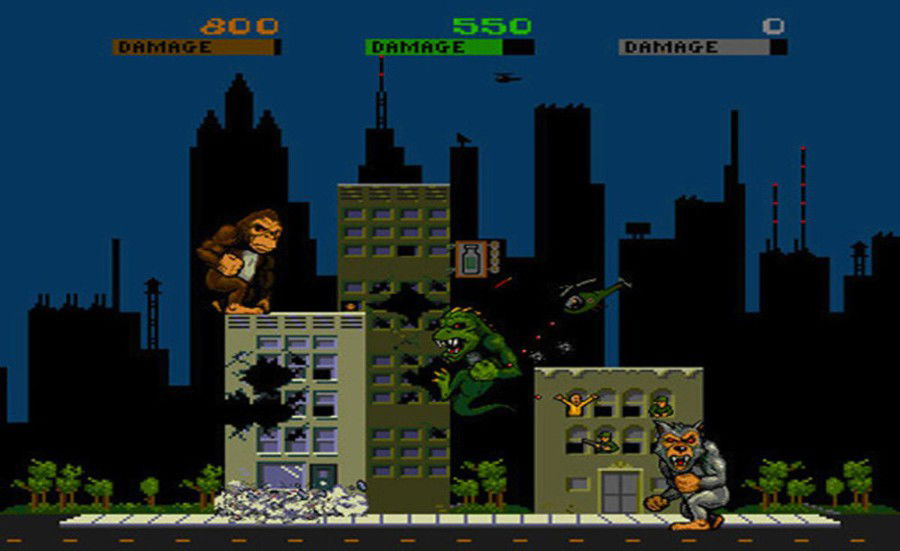
The context even attempts to offer an explanation: the monsters were humans transformed by failed experiments by an evil corporation. But even with this tragic origin, there's no narrative of redemption or attempt to stop the evil. You wake up, transform, and set out to crush everything in your path. And the game doesn't punish you for this—on the contrary, it rewards you for destroying everything faster and causing more damage. What matters is the number of buildings destroyed and the amount of chaos generated.
Destroy All Humans!
In Destroy All Humans! you do exactly what it says on the title, where your main objective is to destroy humans, their cities, army bases, and basically anything they consider important by any means possible. The game begins with you telekinetically eliminating a farmer's cows, and from there it's pure chaos and destruction. There are also stealth sections for intelligence gathering, where you can pilot a flying saucer to gather information.
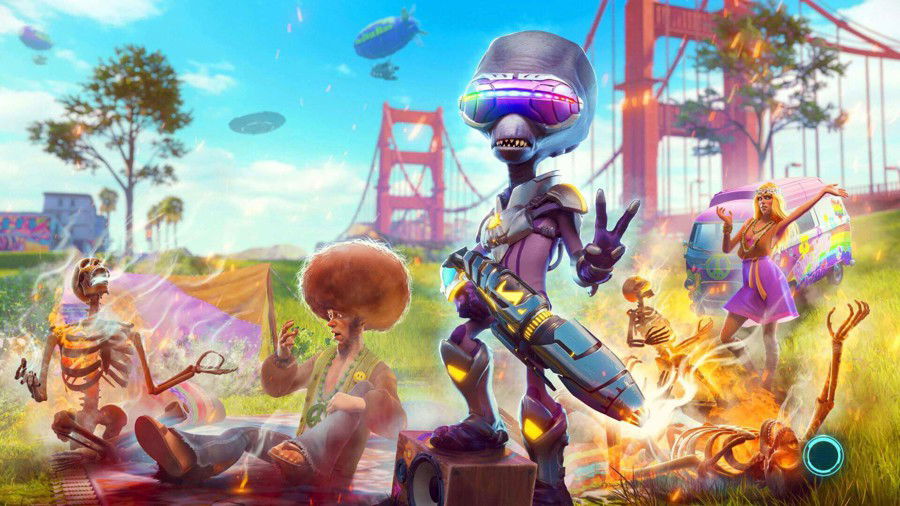
But the rest of the time, you spend the game frequently destroying everything in sight with it. The game is as absurd as it sounds, and the quirky dialogue only adds to its charm. Like Katamari or Rampage, Destroy All Humans! plays with the role of the destroyer, but without attempting to justify it morally. The game laughs at evil, but still puts you controlling a tyrannical invader.
Plague Inc: Evolved
Plague Inc: Evolved puts you in the role of a disease with a single goal: annihilate humanity. You choose between viruses, bacteria, fungi, and other infectious agents, spreading your plague across the globe and developing increasingly lethal symptoms—from fever and coughing to necrosis, delirium, and total organ failure. The game is a cold-blooded strategy game, where each advance represents a defeat for civilization: borders close, governments collapse, and the last humans slowly die, one country at a time.
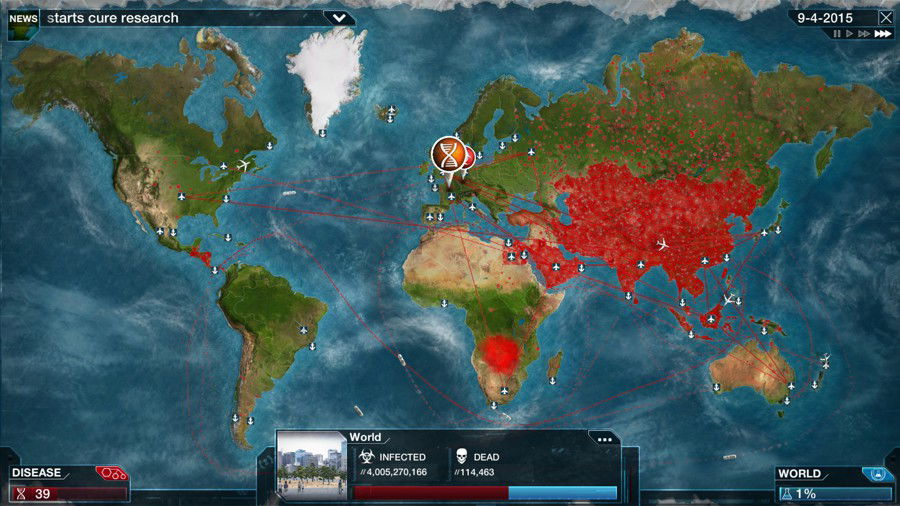
Unlike other games that flirt with evil in a comical or caricatured way, Plague Inc. has no jokes or redemption. Victory only comes when there's no one left alive on the planet, and any trace of morality or empathy is replaced by clinical graphs and cold numbers. You're not the hero, you're not an antihero—you're the end. (Sure, there's a scenario where you're Santa Claus and must deliver all the gifts, but in the end, the game is still 99% about being a villain.)
Carrion
You’re a monstrous creature straight out of a horror movie, trying to escape an underground laboratory. The game describes itself as a "reverse horror"—meaning you’re the monster, and the humans are the terrified victims. Its grotesque aesthetic is definitely not for everyone, but the unique, fast-paced gameplay makes it an easy recommendation for those who enjoy horror games and metroidvanias.
You tear, devour, crush, and manipulate humans as you grow in size and power. There's no chance of redemption; your goal is to destroy anyone who tries to contain you. Carrion doesn't pretend you're "saving" anyone. You’re the threat. The monster. And the game is built entirely to celebrate that role.
Dungeon Keeper
Dungeon Keeper casts you in the classic role of a medieval fantasy villain, but there are no disguises or excuses here: you’re the master of a hellish dungeon, and your job is to annihilate heroes, enslave creatures, and conquer the underworld with an iron fist. Instead of saving kingdoms, you build deadly traps, summon demons, torture your own minions, and transform your lair into a nightmare engineered with sadism and strategy.
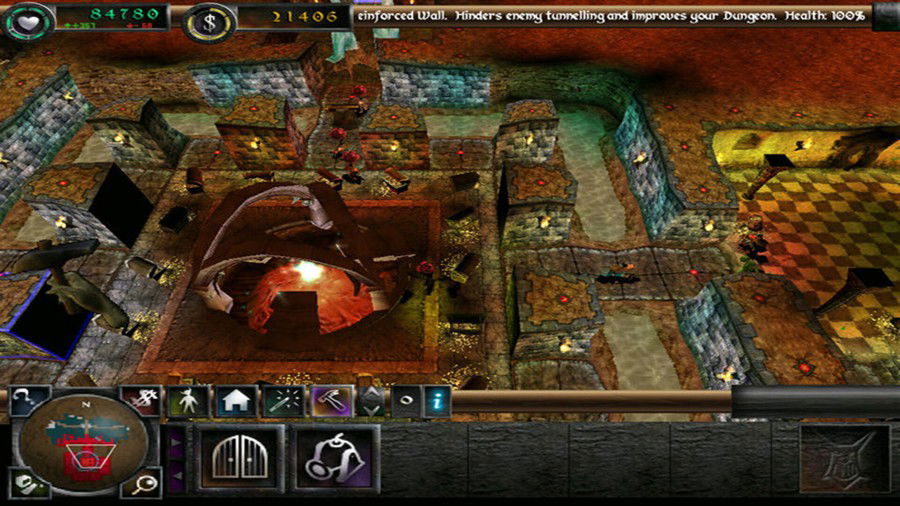
The game's charm lies precisely in this complete role reversal: the "good guys" come to invade your base, and you enjoy watching them get crushed, burned, or devoured. With dark humor and systems that reward efficient cruelty, Dungeon Keeper doesn't try to soften the villainy—it makes you proud to be an evil incarnate.
The Dark Queen of Mortholme
The Dark Queen of Mortholme is a 2D game focused exclusively on the battle between a final boss from a soulslike game and a hero, where you control the villain of the story.
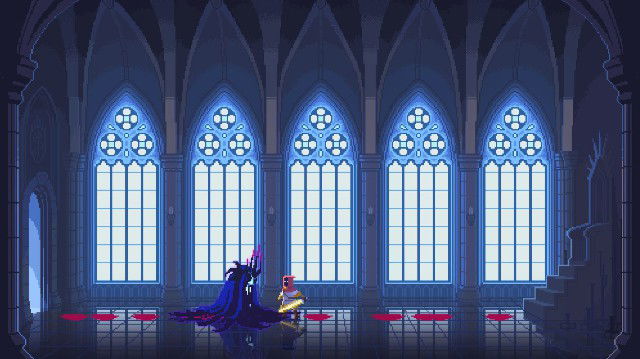
The game's unique feature lies in the hero's evolution: each time he's defeated, he returns stronger, smarter, and better prepared to face you. This transforms the fight into a strategic duel of constant learning and adaptation, where victory depends on anticipating and adapting to the opponent's moves.
The game is minimalist, focused on intense single-screen combat, and offers a unique experience by placing the player in the role of the antagonist, challenging them to stay one step ahead of a hero who never gives up. This mechanic creates growing tension and a unique sense of challenge, making The Dark Queen of Mortholme an interesting game for those seeking something innovative within the 2D souls-like genre.
Do you enjoy games where you take on the role of the villain and cause chaos? Have you ever played Postal or similar titles? Tell us in the comments what you thought of these games with more controversial themes!









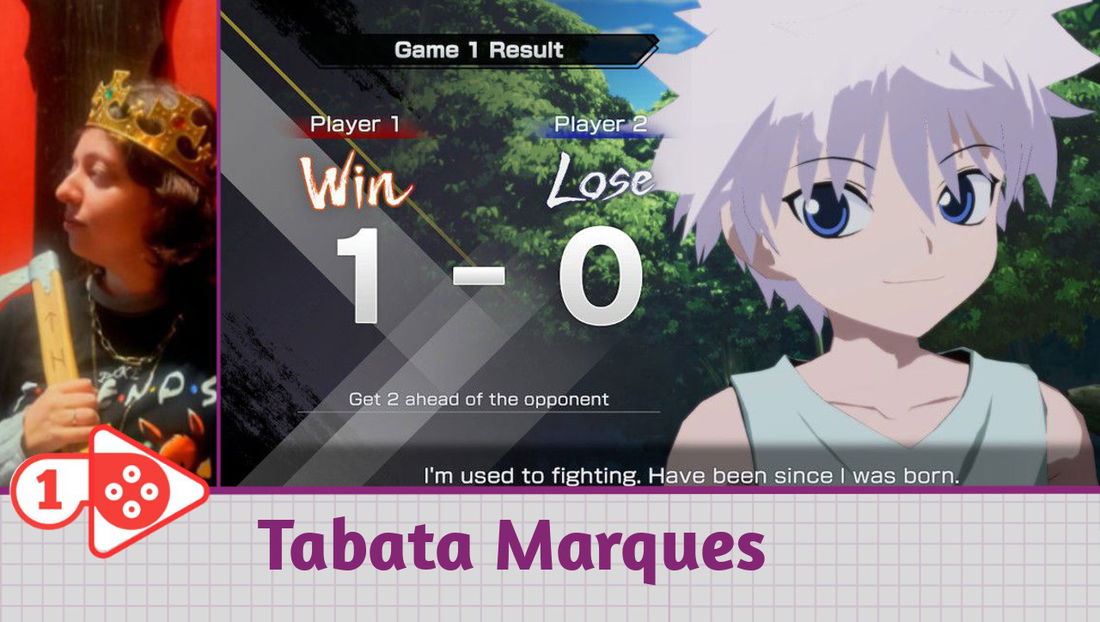
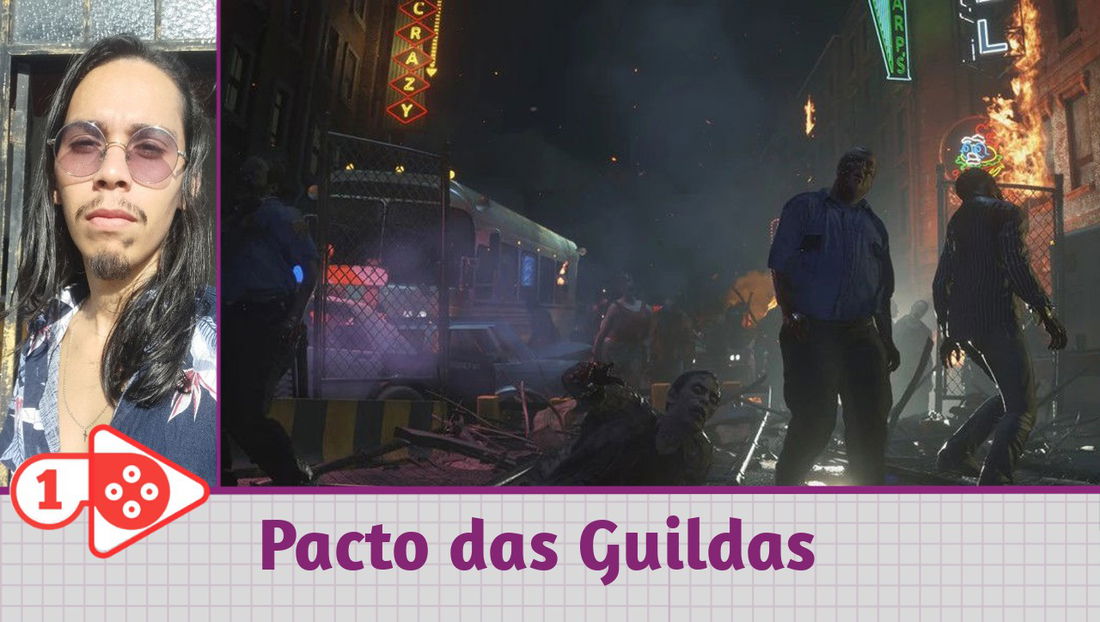

— 评论 0
, 反应 1
成为第一个发表评论的人